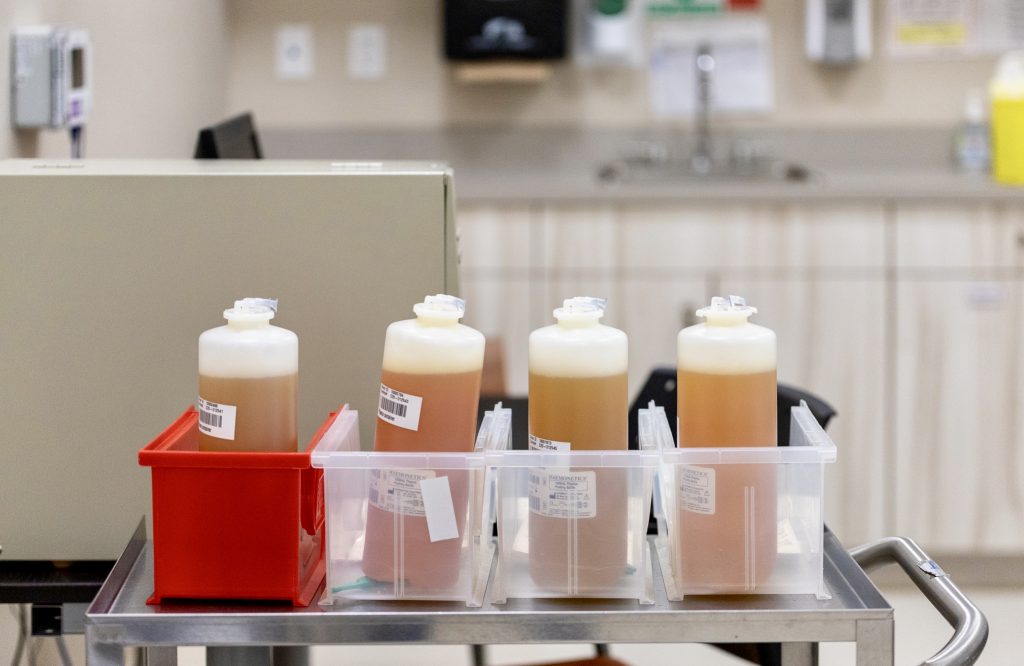Who Benefits From Plasma Donation?
juin 23, 2021

Plasma is a straw-coloured liquid component of blood that contains life-saving proteins. Thousands of people around the world rely on donated source plasma to get access to the treatments they need. It is an essential material that cannot be synthetically produced, which is one of the many reasons why plasma donation is so important.
Curious about who exactly benefits from the plasma donations you make? Keep reading to find out!
Who Needs Plasma Therapies?
Over 80 different autoimmune disorders, immunodeficiencies, and blood disorders can be treated with plasma protein therapies. These diseases and conditions affect a relatively small percentage of the population, so they are considered rare. Most of these conditions are also genetic and chronic.
The plasma protein therapies created from donated source plasma are used to replace missing or deficient proteins in these patients. Patients typically require regular infusions or injections throughout their lives. When individuals with rare and chronic conditions receive plasma protein therapies, it allows them to lead healthier and more productive lives.
Types of Plasma Therapies
There are four main types of plasma therapies that can be manufactured from donated source plasma:
1. Alpha-1 Proteinase Inhibitor Therapies
This plasma-derived therapy is used to treat individuals living with alpha-1 antitrypsin (AAT) deficiency, one of the most common and serious hereditary disorders in the world. If left untreated, the condition can result in life-threatening liver disease or lung disease. Alpha-1 antitrypsin deficiency is also commonly referred to as genetic emphysema.
2. Intravenous Immunoglobulin (IVIg) Therapies
Life-saving IVIg therapy treatments are used to treat several rare and chronic diseases, including:
- Primary Immunodeficiency Diseases: A group of more than 150 rare diseases that are characterized by compromised immune system function.
- Chronic Inflammatory Demyelinating Polyneuropathy (CIDP): A rare autoimmune disorder that targets the body’s nerves and can cause weakness and/or paralysis.
- Idiopathic Thrombocytopenic Purpura (ITP): A blood disorder that causes reduced blood platelet levels, which are essential for blood clotting.
- Kawasaki Disease: An illness that causes inflammation in blood vessels and primarily affects children under the age of five.
3. C1 Esterase Inhibitor Therapies
C1 esterase inhibitor therapies are used to treat hereditary angioedema (HAE), a disorder characterized by recurrent episodes of severe swelling. HAE is caused by a missing C1 esterase inhibitor protein (C1-INH), which is responsible for helping to regulate inflammation.
4. Coagulation Factor Therapies
Coagulation factors, which are proteins in the blood that help with proper blood clot formation, are used to treat various bleeding disorders. Some of these disorders include:
- Antithrombin III Deficiency: A blood disorder that is caused by an abnormal gene that may lead to blood clots forming.
- Hemophilia A: An inherited bleeding disorder that is caused by a lack of clotting factor VIII.
- Hemophilia B: A rarer form of hemophilia that is caused by a mutation in the Factor IX gene.
- Von Willebrand Disease: The most common bleeding disorder. It is an inherited disorder that affects men and women equally, though women are more likely to notice the symptoms of the condition.
Donated source plasma is capable of treating a number of rare and chronic conditions, and scientists continue to find new uses for this “liquid gold” every day. Without continued plasma donations, patients wouldn’t be able to receive the plasma-derived treatments they need to live life to the fullest. Book your next appointment today to contribute to a good cause and get paid up to $400/month!









